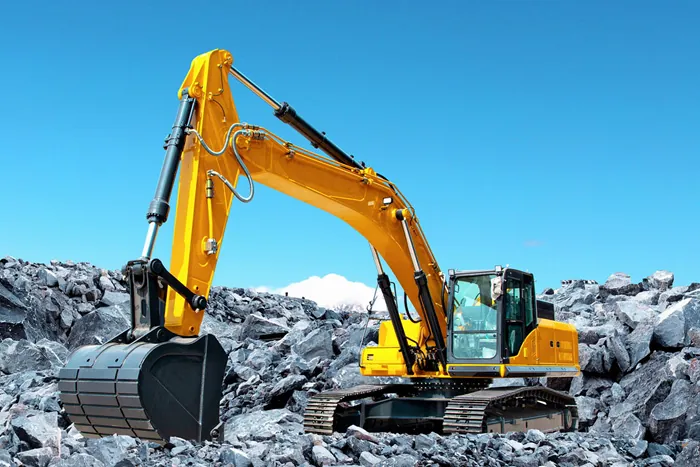Fuel Efficiency in Heavy Equipment

This guide provides construction companies with actionable strategies to improve fuel efficiency in their Heavy Equipment operations. By implementing these tips, companies can reduce overhead costs, minimize environmental impact, and boost profitability.
Understanding Fuel Efficiency
Fuel efficiency goes beyond simply measuring fuel consumption. It's about accomplishing more work with less fuel. Two excavators might use the same amount of fuel in an hour, but the one that moves more dirt is the more fuel-efficient machine.
Fuel-Saving Techniques
Minimize Idling: Modern equipment eliminates the need for extended idling for engine warm-up or cool-down. Instruct operators to turn off engines during breaks and only start them when ready to work. Track idling times and set limits to encourage efficient practices.
Maintain Optimal Speeds: Encourage operators to maintain speeds recommended by the manufacturer for each piece of equipment. Consider installing speed limiters or using telematics software to monitor operator behavior.
Shift Gears Efficiently: Train operators to shift gears at lower RPMs to reduce fuel consumption. They should select the gear that achieves the desired ground speed without overloading the engine.
Travel on Smooth Surfaces: Whenever possible, operate equipment on well-maintained, gravel-free paths. Reduced rolling resistance on smoother surfaces translates to better fuel efficiency.
Optimize Job Site Layouts: Plan construction sites to minimize equipment travel distances. Efficient layouts decrease the number of turns required and reduce idling time.
Right-Size Your Equipment: Matching the machine's horsepower to the job requirements is crucial. Overpowered equipment burns more fuel than necessary. Conduct a thorough equipment needs assessment for each project.
Invest in Newer Technology: As technology advances, newer equipment boasts improved fuel efficiency. Consider strategically upgrading your fleet to machines with the latest fuel-saving features.
Prioritize Preventative maintenance: Regular maintenance is essential for optimal fuel efficiency. Schedule inspections to address issues like clogged air filters, malfunctioning thermostats, and engine wear, all of which can contribute to increased fuel consumption.
Maintain Proper Tire Pressure: Improper tire pressure can significantly impact fuel efficiency. Incorporate tire pressure checks into routine maintenance procedures and train operators to monitor pressure levels.
Reduce Tire Slipping: Excessive tire slippage strains the engine and increases fuel use. Operators should adjust ballast according to load weight to ensure optimal traction.
Use the Correct Fuel: Always adhere to the manufacturer's recommended fuel grade for each machine. Store fuel in designated tanks that are well-shaded to minimize evaporation. Consider using painted aluminum or white storage tanks, which reflect heat and reduce evaporation compared to traditional red tanks.
By implementing these fuel-saving strategies, construction companies can achieve significant cost reductions, lessen their environmental footprint, and gain a competitive edge in the industry.
Why Choose SAIVS™ as Your Supplier?
Committed to innovation and customer needs, SAIVS specializes in high-quality machinery components for diverse industries like construction, mining, and agriculture. They offer a wide range of parts, including undercarriage components for popular brands, ensuring optimal performance and durability. values customer satisfaction, providing competitive prices, fast shipping, and exceptional service to keep your operations running smoothly.